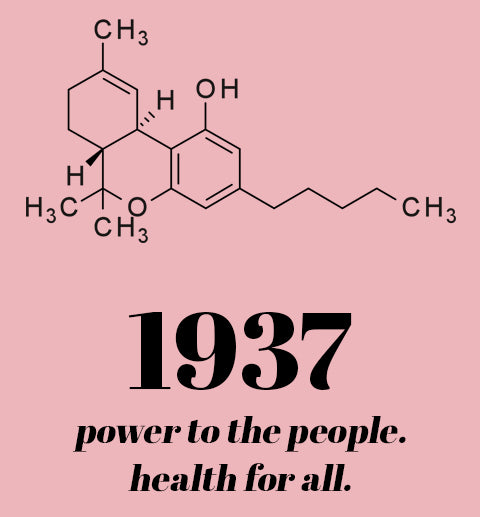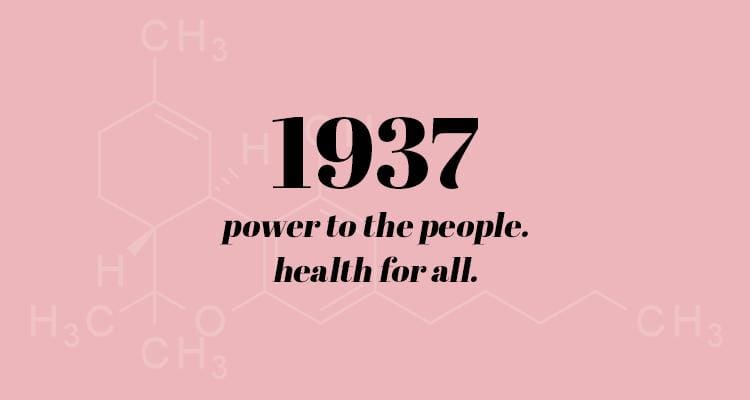How to Overcome Stress: CBD & The Endocannabinoid System

There’s no doubt about it: Americans are stressed. If you’re reading this, you probably are too!
From managing the pressures of supporting yourself or a family, to dealing with a contentious political environment, to navigating the bizarre world that is your nephews Instagram profile, we’re constantly bombarded with uncertainty. The American Institute of Stress reports a staggering statistic that a full 77% of Americans regularly experience physical symptoms caused by stress (2014).
The American Psychological Association (APA) defines stress as “any uncomfortable emotional experience accompanied by predictable biochemical, physiological and behavioral changes.”
Sometimes, these biochemical, physiological, and behavioral changes can help us. College students funnel their stress into studying for end-of-year exams; journalists capitalize on the stress of meeting a deadline to fuel their creativity.
However, the buildup of physical effects associated with stress can take a serious toll on your mind, body, and spirit.
First, let’s examine the two types of stress: Acute and Chronic.
Acute Stress is a bodily reaction to a very specific event that involves novelty, unpredictability, or a threat to your safety or ego. For example, if you’re not a fan of public speaking, before giving a presentation in class or at work your hands might shake, you might experience heightened consciousness of sounds or smells, and your sweat production will likely increase. All of these reactions signify acute stress.
Chronic stress is a state of repeated exposure to situations that lead to stress responses. We find ourselves dealing with chronic stress when facing prolonged, difficult life situations: a divorce, maybe, or an unhealthy work environment.
It’s also important to note that if you judge a situation as stressful, your body will respond accordingly—not everyone’s stressors are the same.

What Does Stress Look Like?
Stress can take a number of forms and might show up in your body, your attitude, or your behavior. Common stress symptoms include:
- Headaches
- Muscle Tension/Aches
- Stomach Upset
- Sleep Problems
- Restlessness
- Anxiety
- Sadness or depression
Other behavioral patterns, such over- or undereating, emotional outbursts, and social withdrawal can also be traced back to stress for some individuals.
Experts at the Mayo Clinic explain that many of us fail to properly identify the connection between symptoms and stress: “You may think illness is to blame for that irritating headache, your frequent insomnia, or your decreased productivity at work. But stress may actually be the cause.”
Long-Term Effects of the Stress
For many of us who suffer from stress, we tend to fixate on the discomfort we feel in our minds; we’re distracted by our thoughts. But our preoccupation with the mental symptoms of stress can cause us to downplay or miss the physical effects stress can have over time.
The APA outlines how stress responses break down your body’s defenses, and the picture it paints is not a pretty one. Stress affects your musculoskeletal, respiratory, cardiovascular, endocrine, gastrointestinal, nervous, and reproductive systems.
In a nutshell, when your body continuously perceives threatening or uncomfortable situations and responds accordingly, your internal systems get really fatigued and stop running properly. Our bodies were not meant to be in a constant state of stress response, and when the switch gets stuck in the “on” position, you overwork nearly every major bodily function. You can read more about the effects of acute and chronic stress on each one of these systems by clicking here.
Finding Relief
People often seek to mitigate the effects of stress, both consciously and subconsciously. Some end up at happy hour five nights a week; others rely on prescription medication, and others seek alternative or wellness options like acupuncture or yoga.
Luckily for chronic stress sufferers, science is uncovering an extremely effective, low-risk remedy that can provide powerful relief: CBD.
What Is CBD?
So what exactly is CBD? CBD stands for cannabidiol, and it’s a natural compound that can be found in a number of plants – most notably, marijuana. The “high” someone feels when using some marijuana substances or products, however, is associated with a different compound – THC, or tetrahydrocannabinol.
There are over 120 of these compounds, or cannabinoids, within the marijuana plant, and science is just now beginning to uncover more of their unique properties. The CBD cannabinoid is not psychoactive, meaning it does not stimulate euphoria or heightened sensory experiences. Your body actually has its own endocannabinoid system (ECS), designed to receive and translate signals from cannabinoids—cool, right?
CBD and Stress
The science gets pretty complex, but the basics come down to this: CBD influences your body to use its own endocannabinoid system more effectively. A small 2010 study published in the Journal of Psychopharmacology indicated that CBD can reduce anxiety—under the influence of CBD, brain scans showed blood flow changes in the areas responsible for anxiety.
Additional studies have shown promise over and over again that CBD specifically can significantly reduce symptoms associated with depression, anxiety, panic disorder, obsessive-compulsive disorder, and post-traumatic stress disorder.

What Does CBD Feel Like?
Everybody is different. Your experience with CBD might be different from mine, which might differ from your co-worker.
I’ve struggled with generalized anxiety and hypochondria since I was 14, which was exacerbated by a traumatic experience in my early 20s that also left me with PTSD—fun combination, right?
With the right balance of therapy and self-care, I’ve been able to rise above my symptoms and lead a pretty “successful” life in the eyes of the world. I have a good job, own my home, enjoy time with friends and family, and am currently venturing into building a personal business.
But what nobody ever saw was the constant fatigue. It took nearly every ounce of my personal fortitude, willpower, and coping skills to manage my daily life and to keep my symptoms from being visible to my coworkers and friends.
I don’t take any prescription anti-anxiety medications, although more than one practitioner has offered this as a potential pathway. For some people, it’s the right choice. For me and my particular background and history, it was never an option.
Instead, I started taking a high-quality, potent CBD oil—one dropper in the morning, one before bed. The first time I tried the oil, I was (of course) really nervous! I didn’t know what it would feel like, or if I would like it. I worried that I would nauseous or uncomfortable. I took my dropper with trepidation and waited to see what would happen.
Within a few minutes of swallowing the smooth, grassy-tasting oil (I purchased an unflavored oil, but they come in different flavors), I felt a warmth spread through my chest and arms. It was sort of like when you get out of the shower after an afternoon on the beach. No fear, no psychoactive effects, no anxiety. Just a pleasantness that made feel pretty excited to take my next dose.
Within two weeks of consistent use, that warm and soft feeling began to linger and feel more normal. The best “word picture” I’ve been able to come up with is this: Previously, all my nerve endings felt frayed, like ropes that had been hacked off with a blunt pocket knife. It was as though someone covered those frayed nerve ends with fleecy mittens.
Not everyone’s experience is the same—yours might be different. Or, maybe you’ll try an oil and hate it! Luckily, because CBD is gaining so much traction in the marketplace, there are lots of ways to incorporate CBD into your routine in a way that works for you.

Getting Started with CBD
If you’re interested in exploring how CBD might be able to curb symptoms related to stress, there are plenty of avenues you can explore. CBD products are available as oils, capsules, topical creams, edibles, and vaping cartridges. Experimenting with a range of products can help you determine which method is best for you.
There are almost no risks associated with using CBD—a few studies list some mild side effects that could be experienced by some individuals, such as dry mouth, changes in appetite, and drowsiness. But CBD is extremely safe. It’s non-toxic, and no fatalities have ever been reported.
Because CBD is not currently regulated by the FDA, it’s important to choose a reputable company. There’s a lot of “junk” out there, and you’ll want to choose a line of products that clearly lists ingredients and company that is transparent about their extraction processes and sourcing.
CBD and Self-Care
Our culture doesn’t do a great job of championing health and self-care; you may need to advocate for yourself. The consequences of stress are real. Failing to manage stress symptoms can wreak havoc on your body’s functioning.
Managing your stress levels is worthy of your time and attention. If you’re experiencing acute or chronic stress, don’t wait until something “breaks” to begin giving yourself the care you need.
Beginning a CBD regimen can help you manage your stress responses and ultimately serve as a catalyst for you to begin taking control of your health. If you’re ready to take the next step in exploring how CBD can work for you, mosey on over to the1937 Hemp Store shop to learn more.

Kyra Denlinger
Kyra is a freelance marketing and communications professional and the co-founder of K to Z Careers, a small business that helps individuals and entrepreneurs find their voice their in a busy digital world. Kyra holds a bachelor’s degree in journalism and a master’s degree in English education. She’s worked in the health and wellness, hospitality, and addiction treatment/behavioral healthcare industries primarily in media, marketing, and content development. When she’s not working, Kyra loves to cook and dedicate regular time to researching recipes, experimenting with exciting new ingredients, and generally making a sizeable mess in the kitchen. She also enjoys practicing Yoga, drawing, spending time with her fiance, and walking outdoors. She is a CBD user and advocate.

